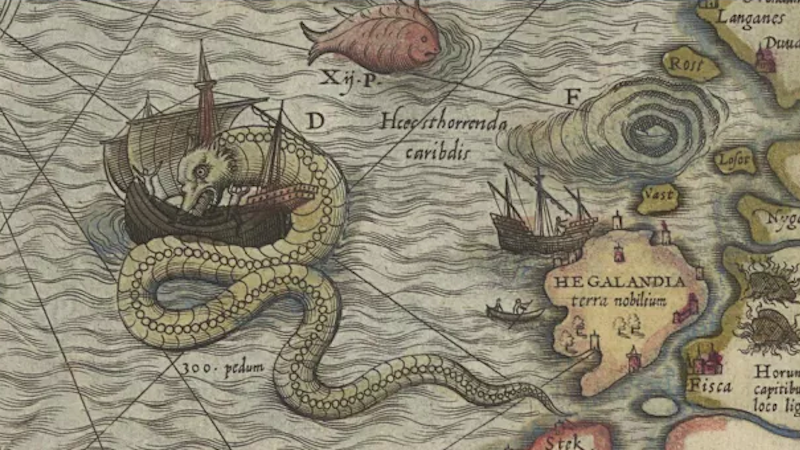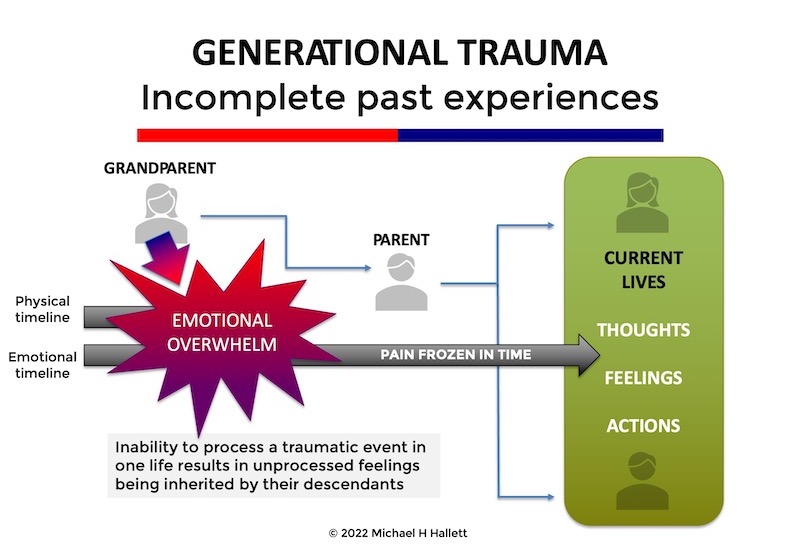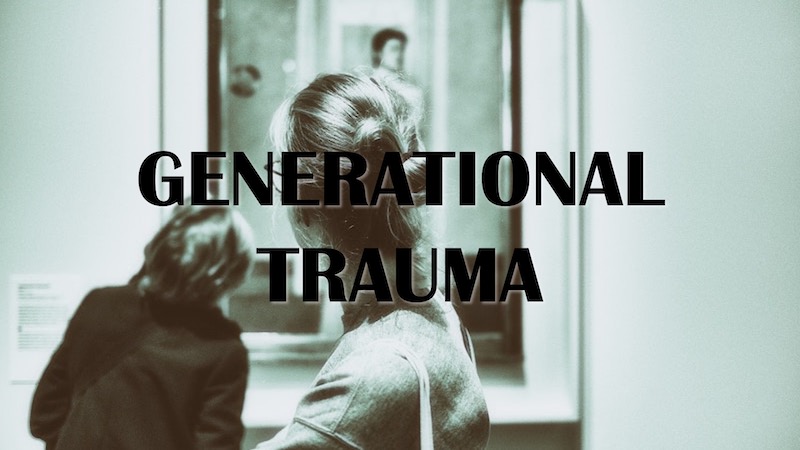‘Here be dragons’ – healing generational trauma is a hero’s journey
- 2 October 2020
- Posted by: Michael H Hallett
- Category: Generational trauma ,

Remember those old maps with blank spaces around the edges marked ‘Here be dragons’? That’s where you’re headed—the blank spaces in your family history: the times, events and people that couldn’t be talked about because of pain and shame. Your journey is what philosopher Joseph Campbell calls a ‘hero’s journey’, out of the safety of the everyday into an underworld of strange forces and unexpected allies.
Generational trauma
I’ve written extensively about generational trauma and its impact. Generational trauma is Post Traumatic Stress Disorder (PTSD) that’s handed down from one generation to another because of the inability to process the pain at the moment that it happened.

Generational trauma focuses on events such as divorces, sex scandals, unexpected deaths, financial failures and traumatic wartime experiences. It creates issues such as abandonment, shame, grief and shock. People struggle to get a grasp on life yet have no idea why, because the original cause occurred before they were born.
Effect is disconnected from cause, making the cause difficult to identify.
Once you’ve identified inherited trauma as a possible source of emotional issues, the journey begins.
The hero’s journey
Joseph Campbell discovered that the key stories or myths of every culture follow a markedly similar pattern, a pattern he termed the ‘hero’s journey’. Wikipedia defines this pattern as “the common template of stories that involve a hero who goes on an adventure, is victorious in a decisive crisis, and comes home changed.”
“The adventure of the hero normally follows the pattern of a separation from the world, a penetration to some source of power, and a life-enhancing return.”
— Joseph Campbell
The hero’s journey begins with the ‘call to adventure’. This is the driver for the journey. Generally, the call to adventure arises because of a seemingly insurmountable obstacle the hero faces. This is definitely the case with generational trauma. No one chooses to tackle it except out of necessity.
In The Hero with a Thousand Faces, Campbell writes: “The first work of the hero is to retreat from the world scene of secondary effects to those causal zones of the psyche where the difficulties really reside.” This is a perfect description of the process of unravelling generational trauma.
While the hero’s journey is most obviously portrayed by fictional narratives such as the original Star Wars films, Jaws, and The Lord of the Rings, the real journey is the inner one.
Planning and preparation
Like any journey into the unknown, there’s only so much planning and preparation you can do. Much will unfold along the way. I’d like to focus on two words in that quote from Campbell.
The first is ‘adventure’. When you can’t plan your way through to the end of an endeavour, attitude becomes all-important.
Yes, you are journeying towards pain. Yes, it’s going to hurt. But, if you can, think of it as an adventure. Stay light on your feet.
Because I can guarantee you that, once you penetrate your own unconscious—the blank spaces on the map—weirdness will happen. As I wrote in Living with ghosts, confronting generational trauma is like dealing with the supernatural. Compressed, damaged energy literally explodes out of your own DNA. These are your dragons.
The second word is ‘life-enhancing’. Every time you access and heal something in your unconscious your life is enhanced. You feel a little more like you—that sounds strange but you’ll see what I mean.
Return and reintegration
To journey back into the past of our families, identify and heal the rifts is also profoundly humbling, with a deep sense of privilege. Yet this can be the hardest part of the journey. Campbell: “The return and reintegration with society… the hero himself may find the most difficult requirement of all.”
The hero’s journey back into the past of our families, to identify and heal its rifts, is profoundly humbling, with a deep sense of privilege.
That’s because you will have changed. You will see things that others don’t; your sight will penetrate deeper into understanding the emotional drivers behind thoughts, feelings and actions—yours or others.
Once you perceive life at this new depth, you cease to be willing to facilitate emotionally immature behaviour, yours or that of others. You’re claiming emotional responsibility for your life—and that’s a one-way street.
Your journey awaits. It’s time to go.
Next steps
For further resources on generational trauma, both free and paid, please click on this image.

Image: Olaus Magnus’ carta marina, 1572 (National Library of Sweden)
